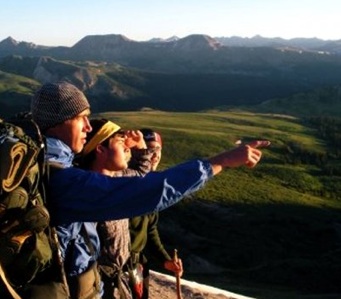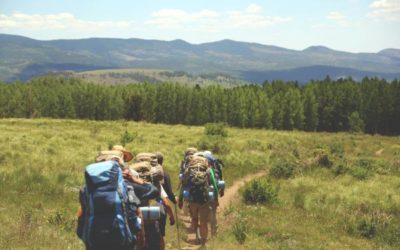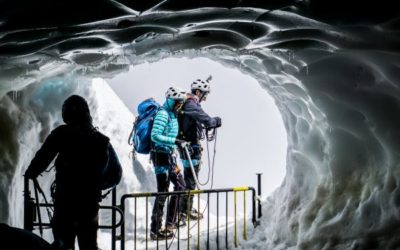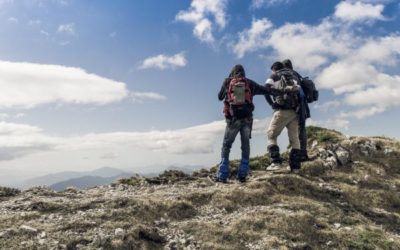This is the last post in the series on How Wilderness Navigation Informs a Quest for Truth. Guest blogger, Emily Huguenin, examines a third obstacle that you can overcome in your quest for “What is true?”
OBSTACLE #3: DOUBTING OUR OWN ABILITY TO INTERPRET TRUTH
Years ago, I guided a group of college students in West Virginia’s Monongahela National Forest for a backpacking class. The students were tasked with finding a certain clearing that had been marked on their maps as a potential campsite. As we walked past the clearing, a few students paused because they correctly guessed that we had reached the location, while the rest of the group charged on. These students second-guessed their own correct interpretation of the map and followed the majority, which ultimately added over an hour of searching and confusion. If the minority had spoken up more confidently about their interpretation, they may have been able to influence the rest to consider that they were headed for the wrong path.
The story of the 12 spies in Numbers 13 illustrates this principal so well. After a long exploration of Canaan, Joshua and Caleb along with 10 other spies returned to report to the people what they had seen. Read what happened next:
They came back to Moses and Aaron and the whole Israelite community at Kadesh in the Desert of Paran. There they reported to them and to the whole assembly and showed them the fruit of the land. They gave Moses this account: ‘We went into the land to which you sent us, and it does flow with milk and honey! Here is its fruit. But the people who live there are powerful, and the cities are fortified and very large. We even saw descendants of Anak there. The Amalekites live in the Negev; the Hittites, Jebusites and Amorites live in the hill country; and the Canaanites live near the sea and along the Jordan.’
Then Caleb silenced the people before Moses and said, ‘We should go up and take possession of the land, for we can certainly do it.’
But the men who had gone up with him said, ‘We can’t attack those people; they are stronger than we are.’ And they spread among the Israelites a bad report about the land they had explored. They said, ‘The land we explored devours those living in it. All the people we saw there are of great size. We saw the Nephilim there (the descendants of Anak come from the Nephilim). We seemed like grasshoppers in our own eyes, and we looked the same to them.” (Numbers 13:26-33)
In the end, it was only Caleb and Joshua who spoke up. And because the other 10 spies were so convinced by their own emotions that surely, “This cannot be what God is asking us to do”, they disobeyed God and did not follow through on the route that he had chosen for them. How sad was the consequence for their disobedience. After this event, God disciplined them by making them wander throughout the wilderness for 40 years until a whole new generation was raised up who would submit to Joshua’s leadership.
RELATED POST: Confused? A Wilderness Experience Might Be the Cure
THE TRUTH IS NOT HIDING
There are many who try to teach that absolute truth is impossible to know and we should only strive to create our own truths without questioning or confronting the truths of others. While it is important to be humble in our knowledge and to consider alternate perspectives, I believe that God created truth to be known through His Word and through the natural laws that He established from the beginning of time. The wilderness can teach you and your group that truth can be found. God is not hiding truth; it is evident to all. Even the Creation points to truth.
It can be easy to doubt our ability to interpret truth or even the existence of absolute truth. However, Jesus declared Himself “the Way, the Truth, and the Life” (John 14:6), and assures you that you can know Him and see His power at work in creation, in society, and in your own heart.
When I feel disconnected from reality and unsure about the truth of God’s work in my life and those around me, I have found that time spent in the wilderness helps me see God’s sovereignty.
REFLECTION QUESTION:
- Are you struggling with finding truth? Why not try taking your Bible on a hike (along with a map and compass!) and see what God reveals to you?
READ THE REST OF THE SERIES
Part 1: How Wilderness Navigation Reconnects You to Truth
Part 2: What’s the Best Map for Navigation? The Bible.
Emily Huguenin is a lifelong adventurer who has been guiding outdoor experiences for youth since 2005. She started her career in outdoor leadership by earning a B.A. in Bible/Theology and Camping Ministry from Appalachian Bible College, and an M.S. in Environmental Education from Montreat College. Emily spent the past ten years directing outdoor education programs, high adventure camps, and wilderness-focused residential summer camps in mountainous places including West Virginia and Wyoming.



